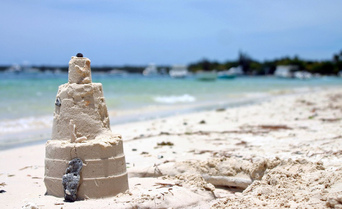
At least, that’s the conclusion of the latest issue of the Index of Economic Freedom, an annual publication of the Wall Street Journal and the Heritage Foundation. The report ranks 185 nations, using several criteria — from a nation’s commitment to the rule of law to the size and scope of its government — that can be described as contributing to economic freedom.
| | It is, in the words of the authors, a way to prove Adam Smith’s theory, first published in 1776, that “When institutions protect the liberty of individuals, greater prosperity results for all.” But even if you’re not steeped in economic theory, this year’s index ought to be a wakeup call. If you don’t see the connection between economic freedom and overall freedom, you haven’t checked out the list. Areas like Hong Kong, Australia and Denmark make up the top 10. The bottom has the likes of North Korea, Cuba and Zimbabwe. Economic freedom and political freedom are close cousins. In the food chain of political conditions, they feed off each other. Last week’s political buffet in this country was dominated by gun control and the president’s call for a $500 million program to curb violence. This came just after the House approved a $50 billion aid package for the victims of Hurricane Sandy. The truth is, we can’t afford either, regardless of their importance. And when politicians finally get back to worrying about the economy — the next fiscal cliff is coming in March, by the way — they ought to quit quibbling over taxing the rich vs. making a few cuts here and there. They need to be “reducing the size of government, overhauling the tax system, transforming costly entitlement programs and streamlining regulations.” When I last wrote about the index, in 2008, the United States ranked fifth. But the recession had just begun and politicians, as they always do in a crisis, were scrambling to do something, anything — even if they had no idea what would help. Since then, government has grown faster than most American waistlines, and more than 100 new major federal regulations have been fixed to business operations like heavy weights to a balloon. This year the United States ranks 10th. It has moved into the category of “mostly free” nations, one notch down from “free.” It isn’t even first in North America. You want free? Travel to Canada, which ranked sixth this year. In the foreword to the report, Wall Street Journal editorial page editor Paul Gigot writes of the “fashionable theory” that “economic recoveries after financial crises are always slower and take longer than recoveries after conventional recessions.” This, he writes, has become a “political excuse,” and it helps explain a worldwide trend toward putting governments, not individuals, at the head of economies. Why does this matter? Two words: Global leadership. The United States risks losing credibility as an economic model for the world, which translates into a loss of influence in a variety of ways. Coupled with the economic decline of most European nations (Scandinavia is a notable exception), this is a disturbing loss of prestige for nations with a history and tradition supporting human rights and basic freedoms. Fortunately, things can change rapidly if nations really want them to. Mauritius, despite its location in impoverished sub-Saharan Africa, leaped into the Top 10 this year at No. 8. Sweden, once known for its socialist policies, has climbed to 18th, aided by tax reforms and policies that have helped the private sector while shrinking government. There is a reason why Swedish companies like IKEA and H&M now dot the Utah landscape, and their success translates into greater freedoms in the homeland. On the other hand, the more money our government removes from the economy, whether through taxation, regulation or the hidden costs of borrowing to pay for debt, the less money there is for people pursue their own dreams. If we remain only mostly free, and if the downward trend continues, we will have to be the home of the brave, indeed. |

 RSS Feed
RSS Feed

